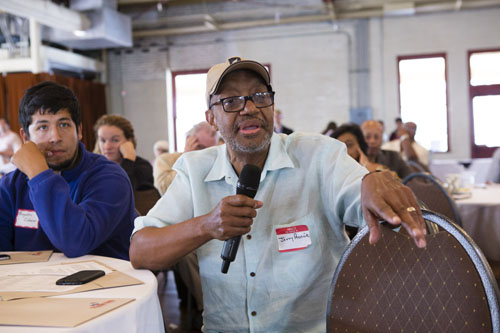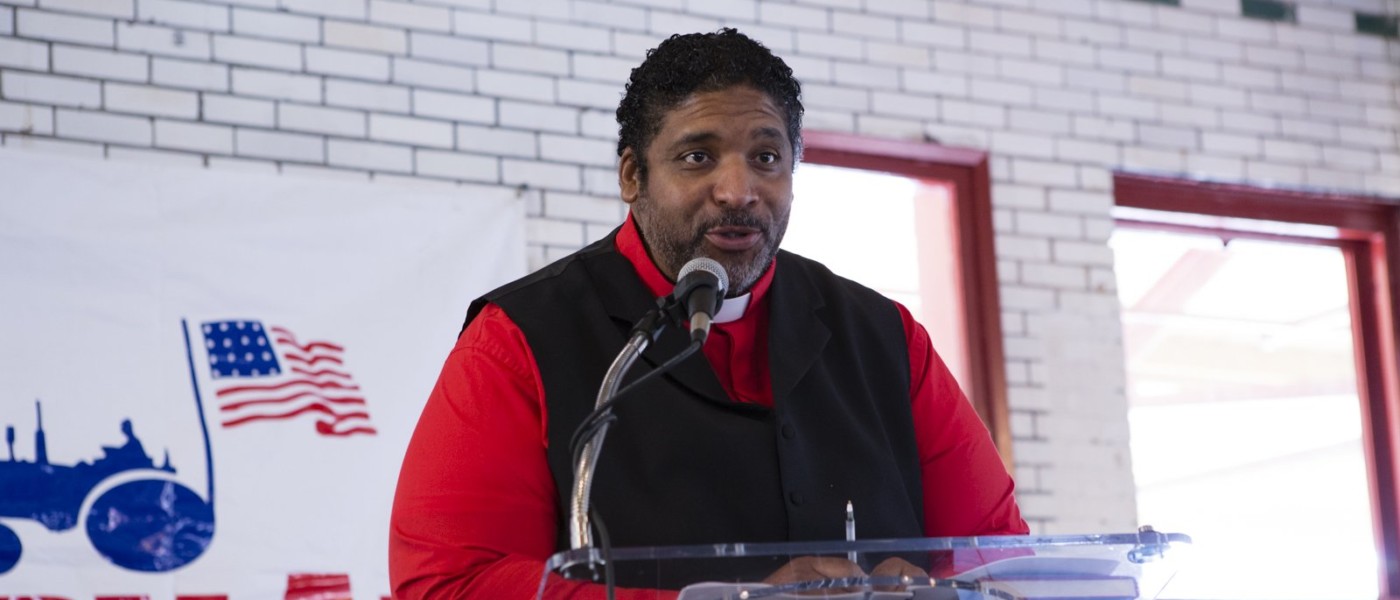On Thursday, September 11, 2014, preceding the Farm Aid 2014 concert in Raleigh, NC, Farm Aid gathered a community of activists in a space of shared learning, discussion and collective visioning.
North Carolina provides an incredibly rich landscape to explore not only food and farm issues of national relevance, but also to learn from the inspiring heritage of organizing in North Carolina and throughout the Southeastern U.S. From Moral Mondays to the Freedom Summer, the success of southern organizers can offer insight and inspiration for farm leaders.
Farm Aid’s Gathering; Looking Back and Moving Forward, Together, explored how to build power together and strengthen what people are doing locally, regionally and nationally. How can we reclaim community power in the face of expanding corporate power? How do we build real coalition derived from a deep power analysis? Proceedings from the gathering are captured below.
Audio & Transcripts from the Gathering
Welcome & Introductions
Carolyn Mugar, Farm Aid
Alicia Harvie, Farm Aid
Mike Sayer, Southern Echo
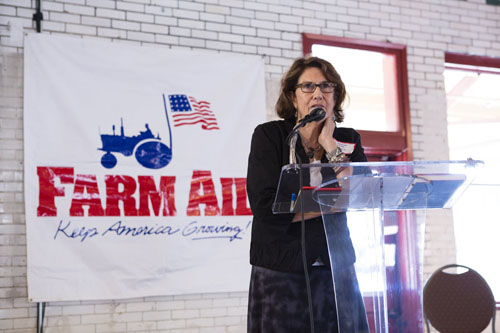
Click to read a transcript PDF >>
Opening Keynote:
Reverend William J. Barber, II
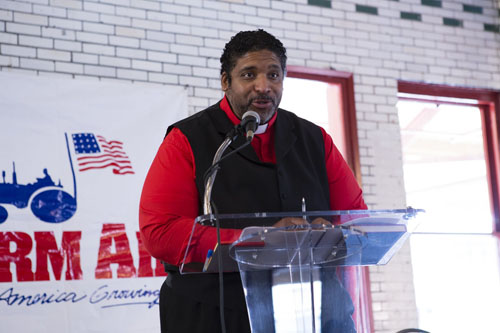
The struggle between different moral centers is the historical thread uniting past and present policy regimes in North Carolina. What does Moral Mondays show us about movement-building in this light? What is food and agriculture’s place in that movement? What is our moral center and vision?
Click to read a transcript PDF >>
Q & A with Reverend William J. Barber, II
Moderated by Alicia Harvie of Farm Aid
Click to read a transcript PDF >>
Morning Panel: Land & Markets: Where is our power?
Savi Horne, Land Loss Prevention Project
Gary Grant, Concerned Citizens of Tillery
Cornelius Blanding, Federation of Southern Cooperatives
Scott Marlow, Rural Advancement Foundation International – USA (RAFI-USA)
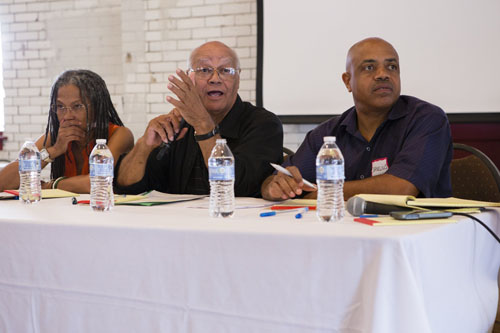
Land is an expression of our democracy — how it is owned and controlled is intimately connected to our freedom and ability to build power. In addition, the ability to build economic power from the land, through markets, is an essential facet of power. What is land’s role in the civil rights struggle in the South and how does it inform the struggles that farmers face across the country today? How did farmers come together to respond to discriminatory practices and what strategies might we consider from their struggle?
Click to read a transcript PDF >>
Poetry Performance:
Shirlette Ammons
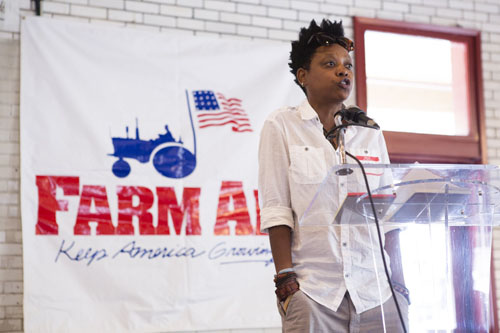
Click to read a transcript PDF >>
Afternoon Panel: Organizing to Become the Architects, Rather than Objects, of Policy
Shirley Sherrod, Southwest Georgia Project
Shorlette Ammons, Center for Environmental Farming Systems, UNC
Baldemar Velasquez, Farm Labor Organizing Committee
Leroy Johnson, Southern Echo
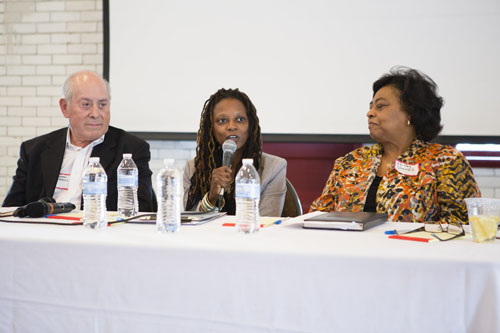
If you’re not at the table, you’re on the menu. How do we build power and exercise our power? It starts with the right to vote, which leads to all other paths for making policy. But, the vote is a tool; we must use it well to make real change and we also must do the hard work of keeping our governments accountable. Why is the issue of voter rights so essential to what we aim to achieve in food and agriculture? What can we learn from grassroots strategies and movement-building activity around voting rights and government accountability?
Click to read a transcript PDF >>
Afternoon Keynote:
Jim Hightower
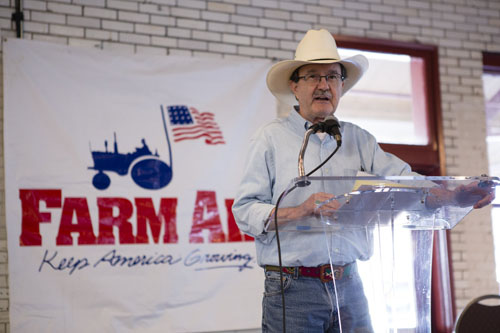
Click to read a transcript PDF >>
Closing Session: Freedom Singers
Charles Sherrod
Geraldine Hudley
O’Linda Watkins Gillis
Bob Zellner
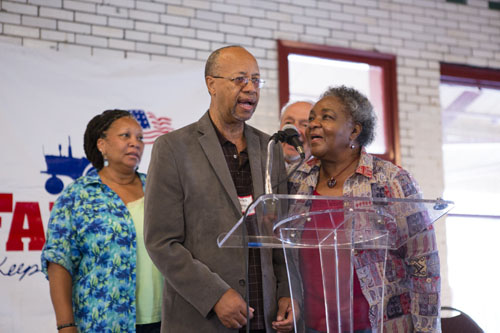
Click to read a transcript PDF >>
Thoughts and Reflections from Gathering Participants
